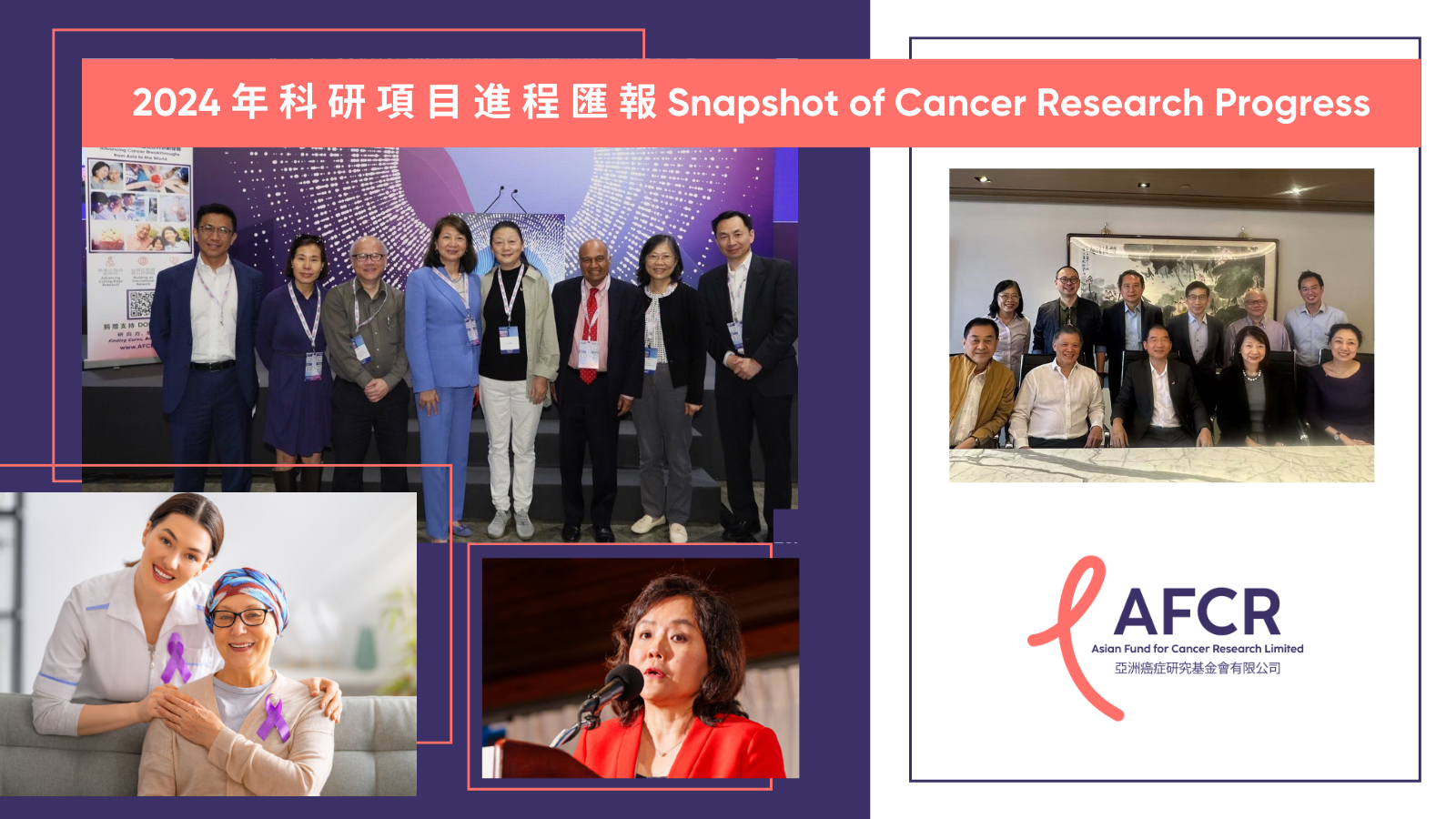NOTABLE RESEARCH HIGHLIGHTS
AFCR-supported scientists have made remarkable advances in the fight against cancer. Here are some notable research highlights in 2024 supported by your generous donations.
First-in Class Molecular Glue Degraders
Dr. Lily Zou’s research is at the forefront of developing a novel class of small molecule drugs through its molecular glue-based targeted protein degradation platform. The proprietary platform has curated a unique and expanding library of molecular glue compounds, enabling the targeting of previously undruggable targets.
Leveraging phenotypic and proteomic screening and artificial intelligence (AI) predicts novel targets and expedites compound discovery. In the growing list of potentially degradable disease targets is a novel degrader of an “undruggable” RNA-binding protein that regulates cancer survival and metastasis, showcasing impressive potency, selectivity, and preliminary pharmacokinetics.
Advancing Treatment Options for Gastro-Related Cancers
2024 brought impactful advancements in the potential of YIV-906, a first-in-class botanical drug developed by Dr. Yung-Chi Cheng, a longtime AFCR-supported scientist at Yale University Medical School.
YIV-906 significantly reduces gastrointestinal(GI) side effects in rectal cancer patients undergoing chemotherapy and radiation. These high impact results suggest YIV-906 should be further evaluated in other clinical trials to assess if there can be similar outcomes for other GI and pelvic cancers.
In pre-clinical models, YIV-906 acts as an immunomodulator, enhancing the immune system’s response to tumors, while also protecting the digestive system.
Platform to Target Conditions with Insufficient Standard of Care
A new platform supported by AFCR in 2024 has developed a new treatment modality, which unlocks a unique mechanism to inhibit the disease driver protein, HDAC6. Dr. Nabanita Nawar’s novel approach tackles key drug development obstacles such as weak binding of the drug to the target, off- target toxicities, and less than optimal pharmacokinetics.
The platform will deliver the first-ever disease-modifying therapy for conditions with ‘insufficient standard of care,’ starting with chemotherapy-induced peripheral neuropathy (CIPN). Up to 80% of cancer patients may experience CPIN that may last from weeks, months, or even years after treatment with symptoms including burning (or warm) feeling, numbness, weakness, discomfort or pain, tingling feeling, and reduced ability to feet hot and cold temperatures.
Currently there is no drug to slow, halt, prevent, or reverse the disease, leaving patients with only symptomatic management. This new treatment has revealed significant results in lab models of cancer, with full disease reversal in symptoms and cognitive deficits (including pain and numbness), paving the way for potentially transformative therapeutic benefits in patients.



